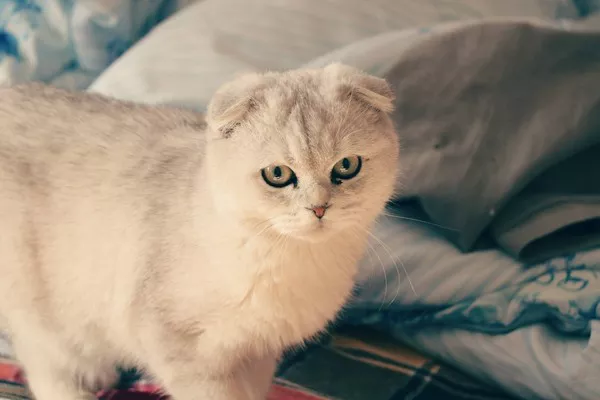Basset Hounds are beloved for their endearing droopy eyes, long ears, and unmistakable low-slung bodies. While their charm is undeniable, potential pet owners often wonder about a notorious aspect of their breed—drooling. In this comprehensive guide, we delve into the world of Basset Hound drooling, examining its causes, management strategies, health implications, and its impact on daily life.
Breed Characteristics:
Basset Hounds are unmistakable with their loose skin, heavy jowls, and pendulous ears. These distinctive physical features contribute significantly to their propensity for drooling. Their loose, elastic skin and prominent jowls create ample space for saliva to accumulate, especially after eating or drinking. Additionally, their floppy ears can inadvertently collect moisture, adding to the drool factor. While these traits are integral to the breed’s unique appearance, they also play a role in their drooling tendencies.
Reasons for Drooling:
Drooling is a natural behavior for many dogs, but Basset Hounds seem to take it to another level. Several factors contribute to their drooling tendencies. Firstly, Basset Hounds have an innate predisposition to drool due to their genetics. Their ancestors were bred for hunting, and their drooling may have served as a scenting mechanism, aiding them in tracking prey.
Furthermore, external stimuli such as food, excitement, or even the presence of other dogs can trigger excessive drooling in Basset Hounds. Additionally, hot weather can exacerbate drooling as they attempt to regulate their body temperature through panting and salivation.
Managing Drooling:
While Basset Hound drooling may be a fact of life for owners, there are strategies to manage and minimize it. Regular cleaning and drying of their facial folds can help prevent moisture buildup, reducing the likelihood of skin irritation and odor. Using absorbent towels or dog-safe wipes can aid in keeping their drool-prone areas clean and dry.
Moreover, providing access to fresh water can help alleviate thirst-induced drooling, as can offering chew toys or treats to distract them from excessive salivation. However, it’s essential to choose toys that won’t exacerbate drooling, such as those that don’t require a lot of chewing or those made of materials that don’t retain moisture.
Health Concerns:
While occasional drooling is normal for Basset Hounds, excessive or sudden onset drooling can indicate underlying health issues that warrant veterinary attention. Dental problems, oral infections, mouth injuries, or foreign objects lodged in the mouth can all cause increased drooling. Additionally, certain medical conditions such as gastrointestinal disorders, heatstroke, or neurological issues may manifest as excessive drooling.
It’s crucial for Basset Hound owners to monitor their pet’s drooling habits and seek veterinary care if they notice any concerning changes. Early detection and treatment of underlying health issues can prevent further complications and ensure the well-being of the dog.
Impact on Lifestyle:
Living with a drooling Basset Hound can certainly present challenges, but many owners find that the joys of pet ownership far outweigh the inconveniences. However, it’s essential to be prepared for the practical implications of their drooling tendencies.
Owners may need to invest in specialized cleaning products to maintain a hygienic living environment and protect furniture and belongings from drool stains. Additionally, it’s wise to keep towels or wipes on hand when taking outings with their Basset Hound to manage drool on the go.
Despite the extra care required, Basset Hound owners often find that their affectionate and loyal companionship more than compensates for the occasional inconvenience of drooling. With proper management and understanding, living with a drooling Basset Hound can be a rewarding experience.
Testimonials:
“I’ve been a proud Basset Hound owner for over a decade, and while the drooling can be messy at times, I wouldn’t trade it for anything. Their affectionate nature and unwavering loyalty make every drool stain worth it.” – Sarah, Basset Hound enthusiast.
“Drooling is just a part of life with a Basset Hound. It’s like having a furry, slobbery best friend who always keeps you on your toes. Sure, there are challenges, but the love and companionship they offer are priceless.” – Mike, devoted Basset Hound owner.
FAQs: Addressing Common Concerns
Q: Is drooling a sign of poor health in Basset Hounds?
A: While occasional drooling is normal, excessive or sudden onset drooling can indicate underlying health issues such as dental problems, oral infections, or medical conditions. Owners should monitor their pet’s drooling habits and consult a veterinarian if they notice any concerning changes.
Q: Can anything be done to reduce Basset Hound drooling?
A: While drooling is a natural behavior for Basset Hounds, there are strategies to manage and minimize it. Regular cleaning and drying of their facial folds, providing access to fresh water, and offering distractions such as chew toys can help alleviate drooling.
In conclusion, while Basset Hounds are notorious for their drooling tendencies, understanding the reasons behind it and implementing effective management strategies can help owners navigate life with their beloved slobbery companions. With proper care and attention, the joys of Basset Hound ownership far outweigh the challenges of managing their drooling.
Related Topics:




















